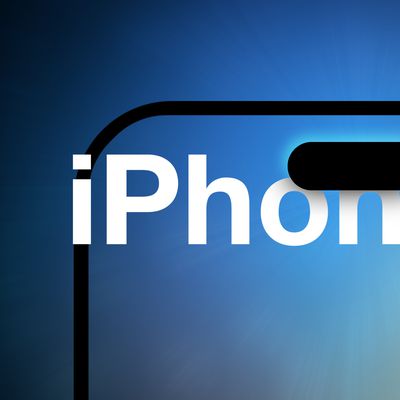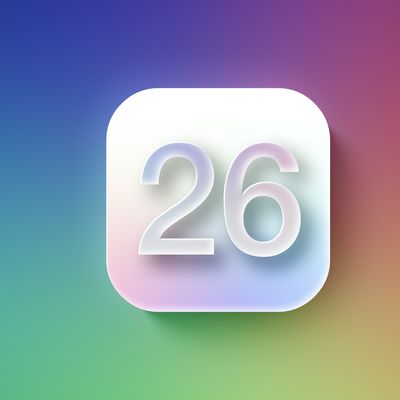iPhone 11 Pro Max Outperforms Competing Smartphones to Earn DisplayMate's Highest Ever A+ Grade
Apple's new iPhone 11 Pro Max has earned display testing and calibration firm DisplayMate's "highest ever A+ grade" for providing "considerably better display performance than other competing smartphones."

DisplayMate tested the iPhone 11 Pro Max's display and found "major" performance improvements compared to the iPhone XS Max's display, including increased peak brightness, improved absolute color accuracy, and slightly lower screen reflectance, all while being up to 15 percent more power efficient.
DisplayMate:
The iPhone 11 Pro Max is a Very Impressive Top Tier Smartphone Display
Apple has continued to raise the on-screen Absolute Picture Quality and Absolute Color Accuracy of their displays by implementing Precision Factory Display Calibration, moving the overall iPhone 11 Pro Max display performance up to Record Setting Outstanding levels, and setting or matching many Display Performance Records, including Absolute Color Accuracy at a very impressive 0.9 JNCD that is Visually Indistinguishable From Perfect, and almost certainly considerably better than your existing Smartphone, 4K UHD TV, Tablet, Laptop and computer monitor.
The iPhone 11 Pro Max also has a Record Full Screen Peak Brightness of 770 nits, and 820 nits for the typical Average Picture Level of 50%, which is roughly double of most high-end Smartphones. Compared to the iPhone XS Max, the iPhone 11 Pro Max has a number of notable improvements including 17% higher Full Screen Peak Brightness and up to 15% higher Display Power Efficiency.
Read the full DisplayMate article for in-depth analysis of the iPhone 11 Pro Max's display and the methodology behind its testing.
Popular Stories
While the iPhone 17 Pro and iPhone 17 Pro Max are not expected to launch until September, there are already plenty of rumors about the devices.
Below, we recap key changes rumored for the iPhone 17 Pro models as of May 2025:
Aluminum frame: iPhone 17 Pro models are rumored to have an aluminum frame, whereas the iPhone 15 Pro and iPhone 16 Pro models have a titanium frame, and the iPhone X ...
With the design overhaul that's coming this year, Apple plans to rename all of its operating systems, reports Bloomberg. Going forward, iOS, iPadOS, macOS, tvOS, watchOS, and visionOS will be identified by year, rather than by version number. We're not going to be getting iOS 19, we're getting iOS 26.
Subscribe to the MacRumors YouTube channel for more videos.
iOS 26 will be accompanied by...
Apple's iPhone 17 lineup will include four iPhones, and two of those are going to get all-new display sizes. There's the iPhone 17 Air, which we've heard about several times, but the standard iPhone 17 is also going to have a different display size.
We've heard a bit about the updated size before, but with most rumors focusing on the iPhone 17 Air, it's easy to forget. Display analyst Ross...
Sony today provided a closer look at the iPhone rigs used to shoot the upcoming post-apocalyptic British horror movie "28 Years Later" (via IGN).
With a budget of $75 million, Danny Boyle's 28 Years Later will become the first major blockbuster movie to be shot on iPhone. 28 Years Later is the sequel to "28 Days Later" (2002) and "28 Weeks Later" (2007), which depict the aftermath of a...
The next major version of macOS, now dubbed "macOS 26," is rumored to drop support for several older Intel-based Mac models currently compatible with macOS Sequoia.
According to individuals familiar with the matter cited by AppleInsider, the following Macs will not be supported by the next version of macOS:
MacBook Pro (2018)
iMac (2019)
iMac Pro (2017)
Mac mini (2018)
MacB...
With the next-generation version of iOS and other 2025 software updates, Apple is planning to change its numbering scheme. Rather than iOS 19, which would logically follow iOS 18, Apple is instead going to call the update iOS 26. Apple plans to use 26 across all of its platforms (the number representing the upcoming year), which will presumably be less confusing than having iOS 19, macOS 16,...
Apple is reportedly preparing to implement significant iPhone hardware redesigns each year for the next three generations.
According leaks from the Chinese supply chain disclosed by Weibo user "Digital Chat Station," Apple plans to carry out a series of phased industrial design changes affecting different parts of the iPhone across three consecutive years: 2025, 2026, and 2027. The changes...






















